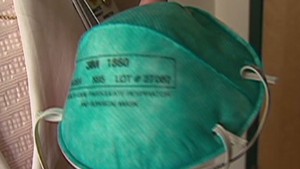- Saudi Arabia reports 282 deaths from MERS since 2012
- There are 688 cases over that time; 353 of those diagnosed recovered
- MERS originated on the Arabian Peninsula but has since spread
- CDC: The respiratory illness is deadly about 30% of the time
(CNN) -- Saudi Arabia reported significantly more deaths from the MERS virus on Tuesday, the same day the country sacked one of its top health officials.
The Saudi Ministry of Health reported that 282 people have died since 2012 from the Middle East respiratory symptom coronavirus, or MERS-CoV, a major uptick from the previous official death toll of 190.
This is out of 688 total cases in the Arab nation; 353 patients have recovered and 53 are still receiving treatment.
About five weeks ago, Saudi Arabia was reporting 339 known cases of MERS-CoV, 102 of which had resulted in deaths.
 MERS virus contracted in the U.S.
MERS virus contracted in the U.S. US case of MERS spread via handshake
US case of MERS spread via handshake Hospitals prepare for MERS outbreak
Hospitals prepare for MERS outbreakThe new numbers came out the same day that acting Health Minister Adel bin Mohammed Fakieh announced he had relieved Deputy Health Minister Dr. Ziad Memish from his post, according to a statement on the health ministry's website. No reason was given.
Last week, the World Health Organization reported it was aware of 636 "laboratory-confirmed cases" of MERS infections, which had led to 193 deaths. It is not immediately clear how Saudi Arabia's latest figures affect those numbers. There are documented cases of the virus around the world.
As a coronavirus, MERS is in the same group of illnesses as the common cold.
But it is much more lethal: The U.S. Centers for Disease Control and Prevention notes that about 30% of those infected have died.
Those with MERS have severe acute respiratory illness, including symptoms such as fever, cough and shortness of breath. Some develop more dangerous complications like pneumonia and kidney failure.
There is no vaccine or special treatment.
MERS is thought to have originated on the Arabian Peninsula in 2012. No one knows exactly where it came from, but evidence implicating camels is emerging. In a recently published study in mBio, researchers said they isolated live MERS virus from two single-humped camels, known as dromedaries. They found multiple substrains in the camel viruses, including one that perfectly matches a substrain isolated from a human patient.
MERS: 5 things to know
CNN's Elizabeth Landau contributed to this report.
Source : http://www.cnn.com/2014/06/03/health/mers-outbreak/